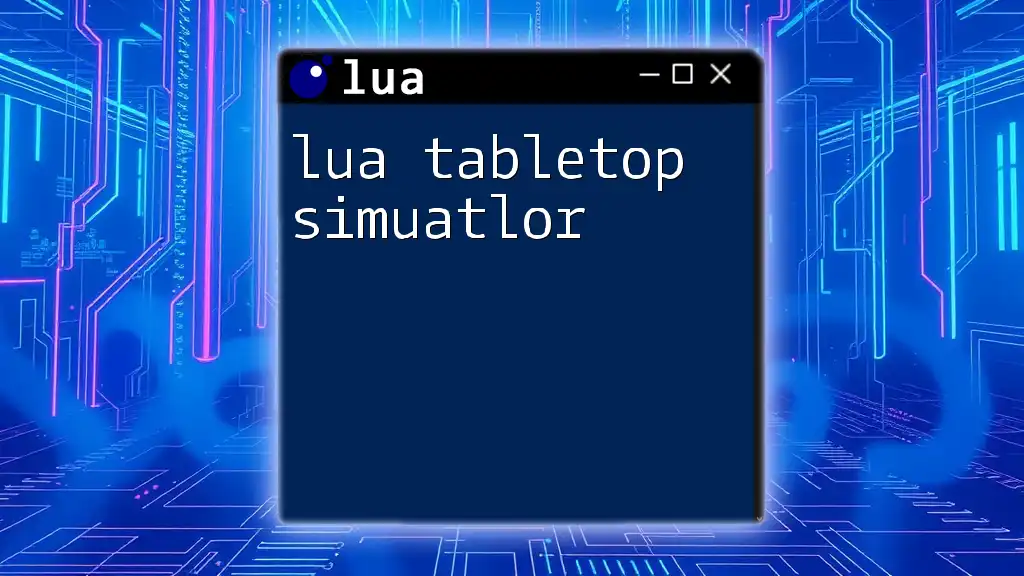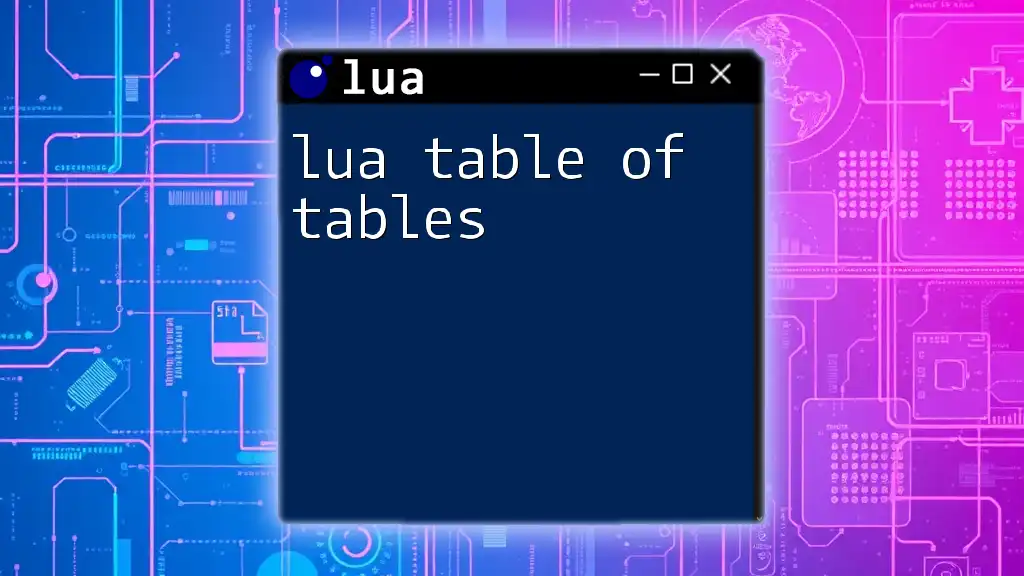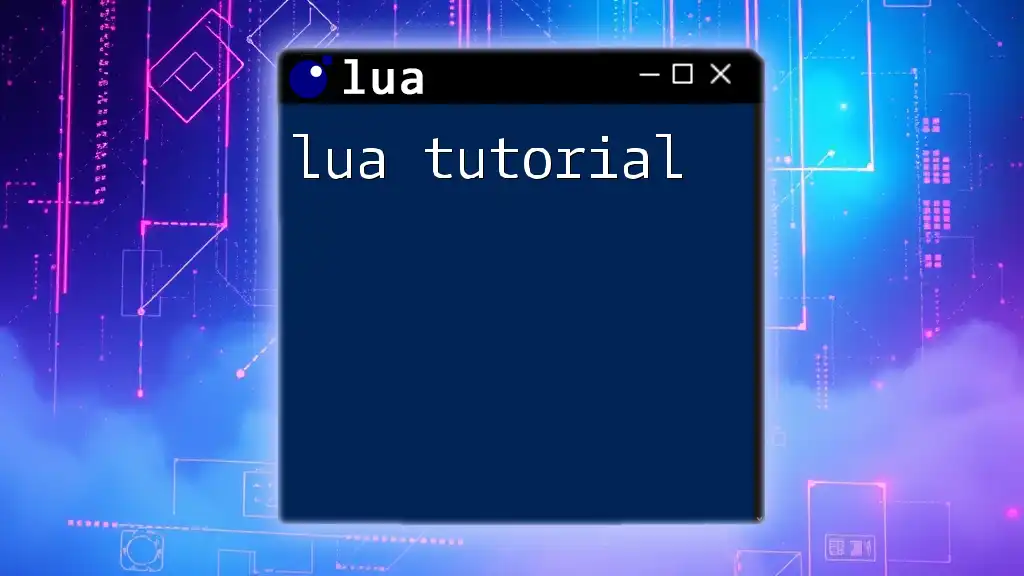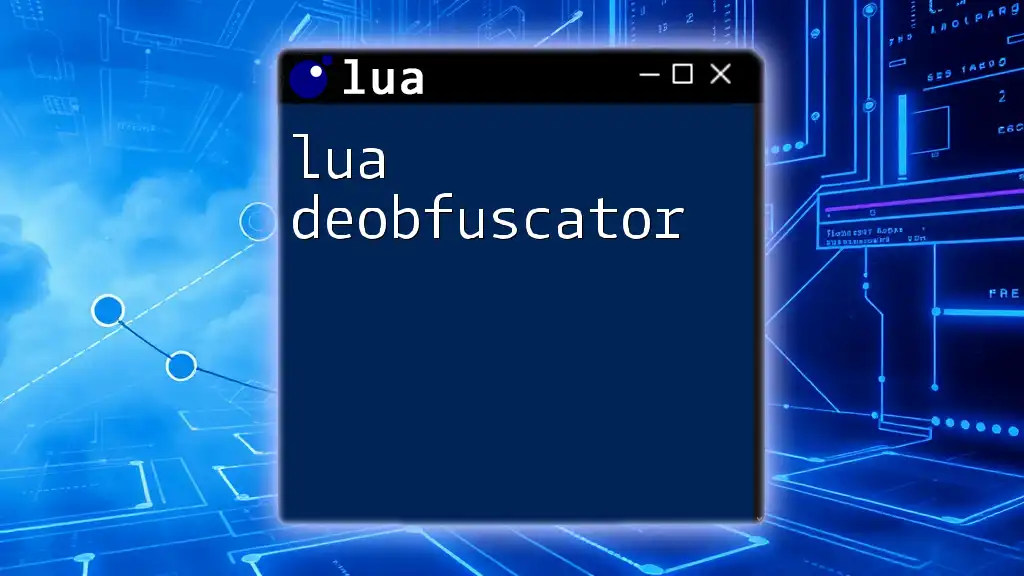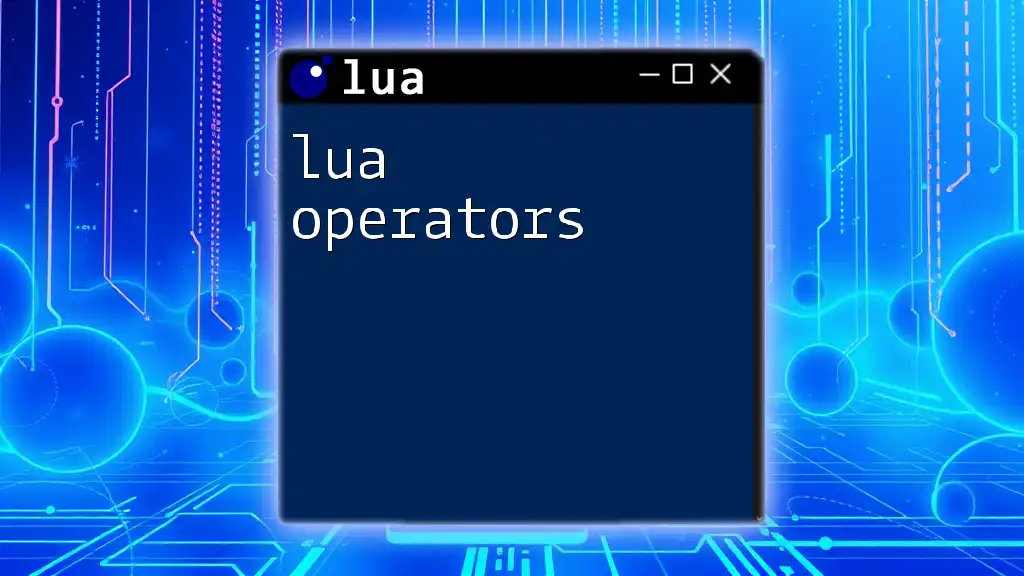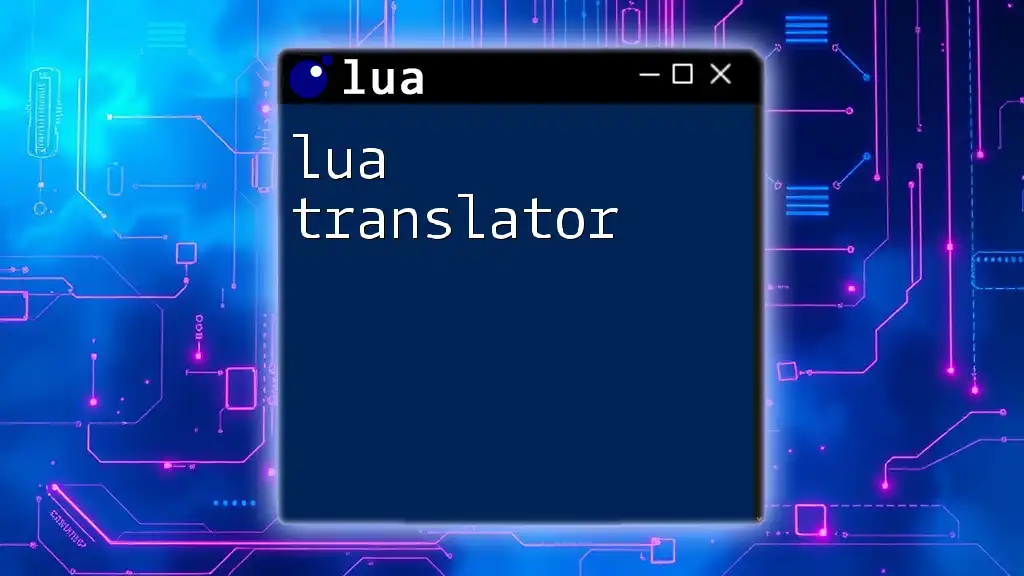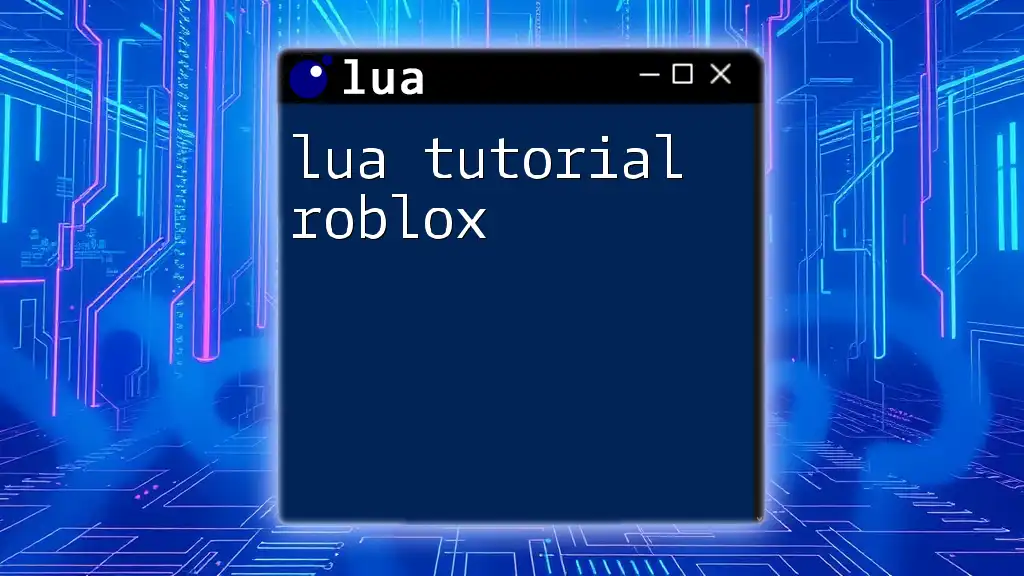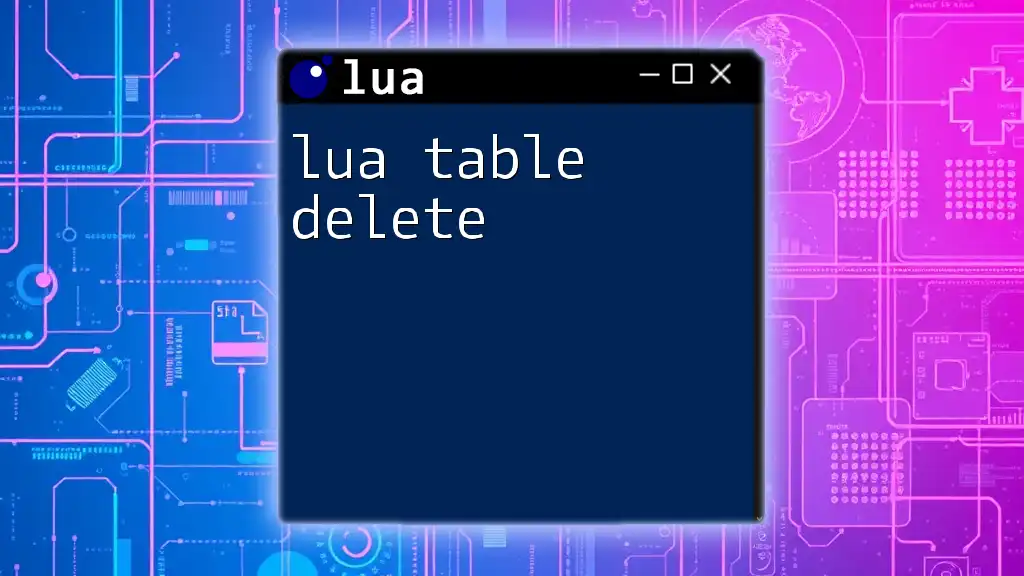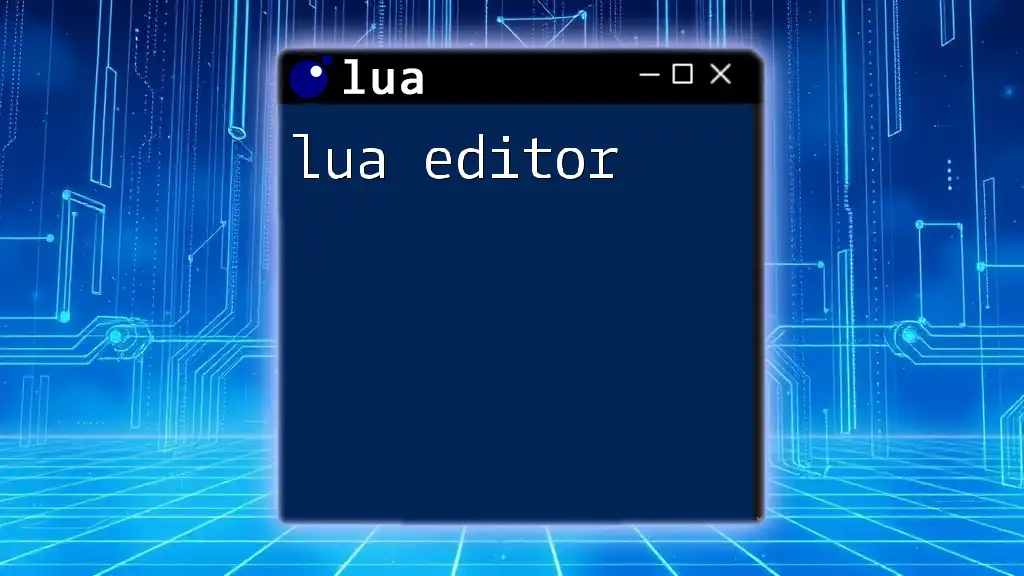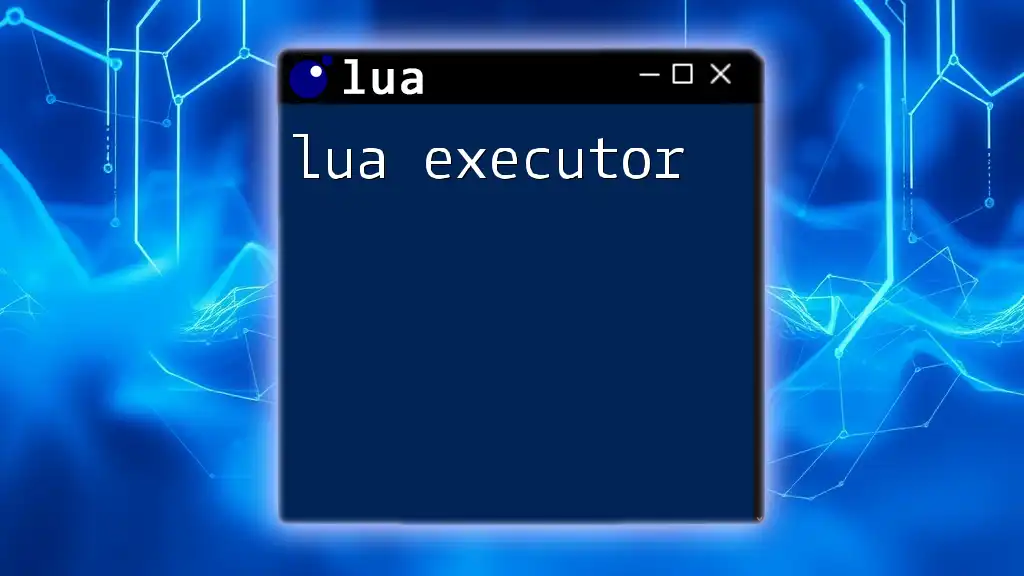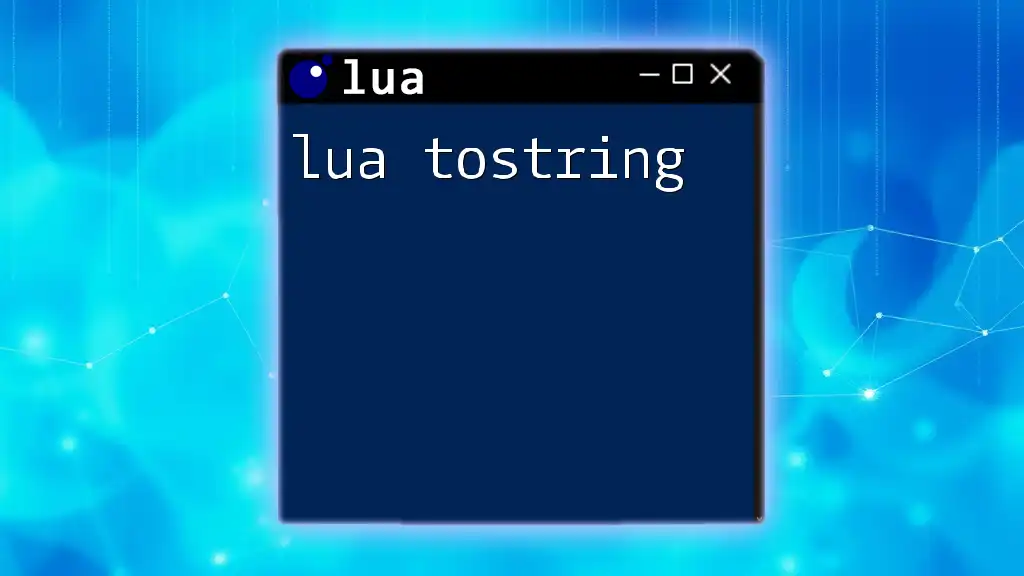The Lua Tabletop Simulator is a powerful tool for creating and modifying gameplay elements through simple scripting commands, allowing users to enhance their tabletop gaming experience.
Here’s a basic example to create a card in Tabletop Simulator using Lua:
function onLoad()
createObject({
slot = 0,
type = "Card",
callback_function = "onObjectLoaded",
position = {0, 1, 0},
rotation = {0, 180, 0}
})
end
function onObjectLoaded(obj)
obj.setName("My Custom Card")
end
Getting Started with Lua in Tabletop Simulator
Setting Up Your Environment
Installing Tabletop Simulator
To dive into the world of Lua scripting in Tabletop Simulator, the first step is to install the game. You can find Tabletop Simulator on platforms like Steam. Simply search for it, purchase, and follow the installation prompts. Once installed, launch the game, and you are ready to start customizing your gaming experience.
Accessing the Lua Console
The Lua console is your primary tool for scripting in Tabletop Simulator. To open the console, press `F8` while in the game. This will bring up a text interface where you can type Lua commands directly. Understanding how to navigate and utilize this console is essential, as it allows you to test and run your scripts live without needing to load a separate editor.
Understanding Lua Basics
What is Lua?
Lua is a powerful, efficient scripting language commonly used for embedding within applications. In the context of Tabletop Simulator, it serves as the backbone for creating custom controls and automations within games. Its simplicity and flexibility make it an ideal choice for game developers of all levels.
Key Lua Concepts Explanation
Getting comfortable with Lua involves familiarizing yourself with its fundamental components:
- Variables: Contain data values, such as numbers and strings.
- Functions: Containers for reusable code, crucial for organizing your scripts.
- Tables: The primary data structure in Lua, used for arrays and dictionaries, making it easy to store data.
- Control Structures: Includes conditionals (`if`, `else`) and loops (`for`, `while`) for controlling the flow of your scripts.
Lua Syntax Examples
A basic Lua command is straightforward. For instance, declaring a variable can be done as follows:
local playerName = "Alice"
Here, `local` defines the variable's scope, which is a good practice for avoiding conflicts.
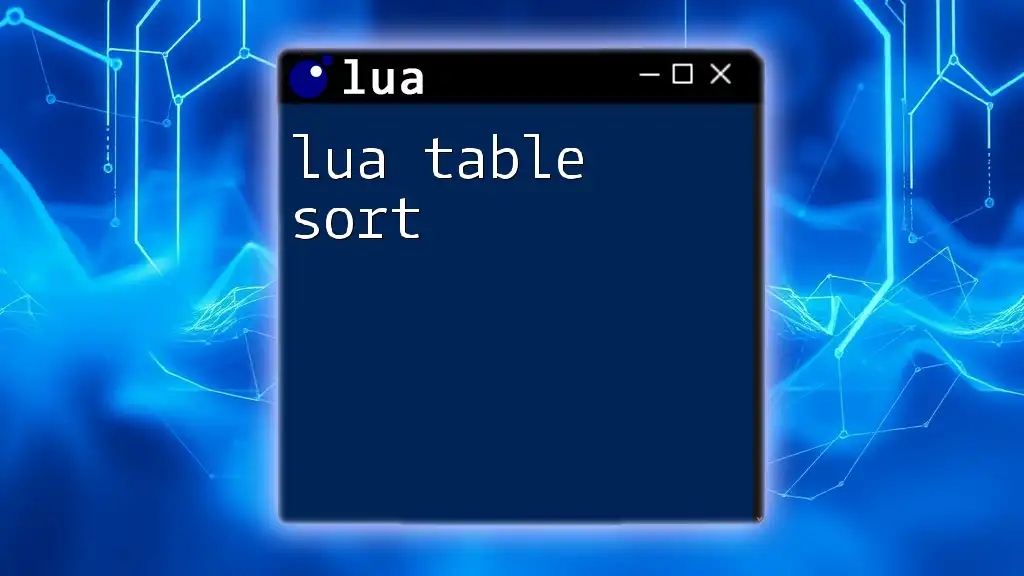
Lua Script Integration in Tabletop Simulator
Creating Your First Lua Script
Script Creation Process
When you're ready to start scripting, open the Lua console and begin by creating basic functionalities. A practical starting point is to create a script that spawns objects in your game.
Example Script to Spawn Objects
This code snippet demonstrates how to spawn a cube within the game world:
function spawnCube()
local cube = spawnObject({
type = "Cube",
position = {0, 1, 0},
rotation = {0, 0, 0},
scale = {1, 1, 1}
})
end
spawnCube()
This script uses the `spawnObject` function to place a cube at specified coordinates.
Understanding the Tabletop Simulator API
Overview of API Functions
Tabletop Simulator offers a comprehensive API that allows you to interact with game elements. Refer to the official API documentation for a complete list of available functions and features.
Commonly Used Functions
Key functions you will frequently use include:
- `spawnObject`: Allows you to create new game objects.
- `getObject`: Fetches an existing object for further manipulation.
- `setPosition`: Changes the position of an object.
For example, here’s how you can change an object's position:
function moveObject()
local object = getObjectFromGUID("GUID_HERE")
object.setPosition({1, 2, 3})
end
moveObject()
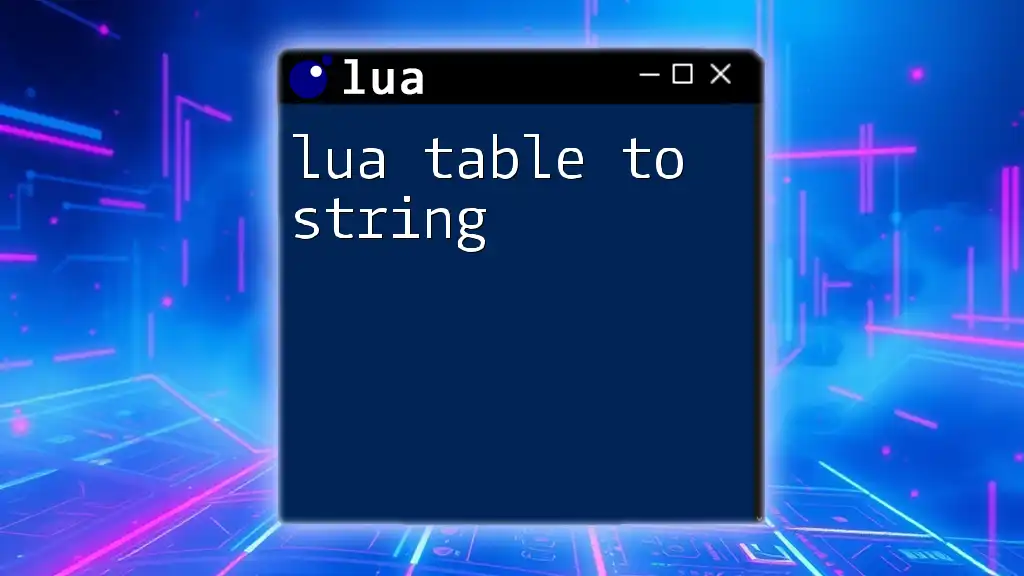
Advanced Lua Scripting Techniques
Custom Game Mechanics
Creating Custom Rules
Many players enjoy custom rules tailored to their gameplay. Lua allows for the implementation of specific mechanics unique to your game.
Example of a Card Draw Mechanic
If you are creating a card game, you might want to draw a card from a deck. Here’s how you could implement that:
function drawCard(player)
local card = getObjectFromGUID("GUID_HERE")
card.setPosition(player.getHandTransform().position)
end
This function takes in a player and moves the specified card to the player’s hand.
Event Handling in Tabletop Simulator
Understanding Events
Events in Tabletop Simulator are significant as they trigger specific actions. These can range from object interactions to player actions, making them essential for dynamic gameplay.
Examples of Event Listeners
Utilizing event listeners enhances your game's interactivity. For instance, you can listen for when a player draws a card:
function onPlayerDraw(player_color, drawn_card)
print(player_color .. " drew a card")
end
This simple function prints a message to the console whenever a card is drawn.
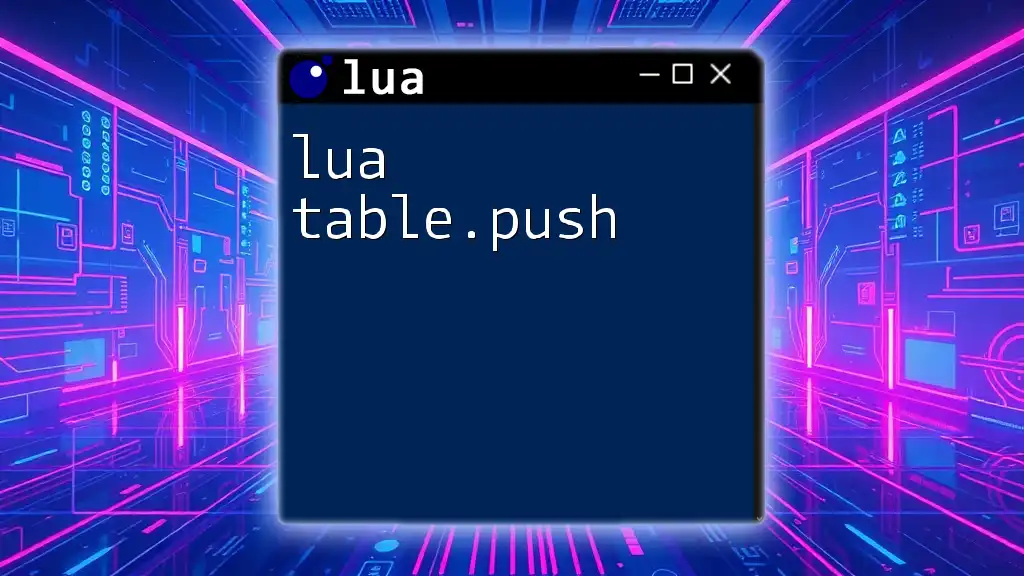
Best Practices for Lua Scripting
Debugging Common Issues
Identifying and Fixing Bugs
Debugging is an essential part of programming. Always utilize print statements liberally to check the flow of your code and confirm that variables are as expected.
Common Errors and Solutions
One common mistake is trying to access objects before they're properly loaded. Ensure your scripts account for loading times and utilize proper checks.
Optimizing Your Code
Performance Considerations
Performance matters, especially in games with many objects and actions. Avoid excessive loops and complex calculations within frequently called functions.
Example of Optimized Object Manipulation
Instead of creating multiple objects in a tight loop, consider batching operations or triggering them based on player actions.
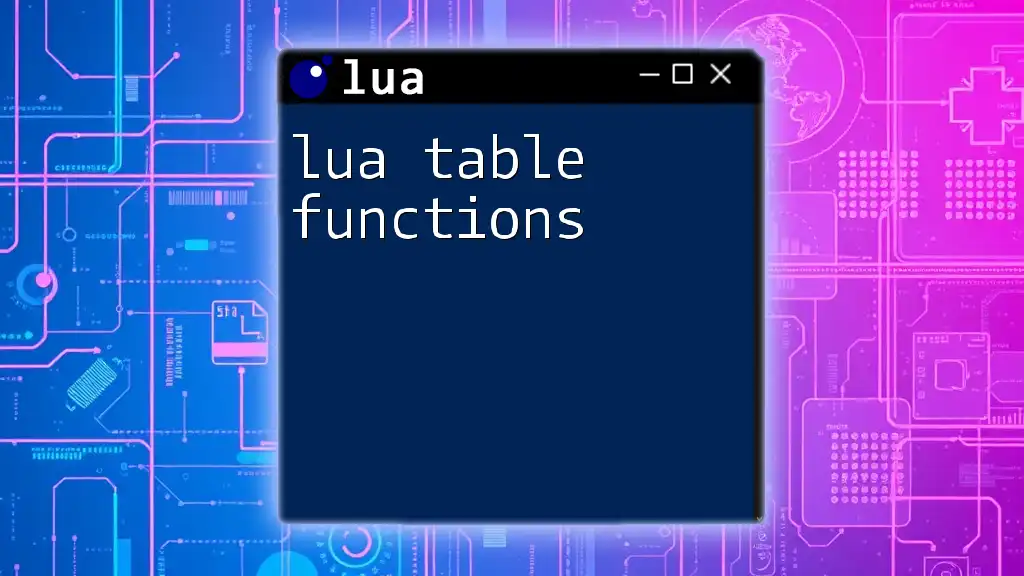
Resources for Further Learning
Recommended Tutorials and Documentation
Official Tabletop Simulator Documentation
The best place to find reliable information is the official Tabletop Simulator documentation. It covers scripting extensively, with examples to help you grasp concepts quickly.
Lua Learning Resources
Plenty of online platforms and books exist for learning Lua. Websites like Lua’s official documentation and community forums like Stack Overflow can also provide valuable insights.
Community and Forums
Engaging with the Lua Community
Networking with other Lua developers can broaden your knowledge. Online platforms such as Discord servers and Reddit can connect you to peers in the community.
Using Community Scripts
The community often shares scripts online, allowing you to learn from their code. When modifying these scripts, always understand the underlying logic to enhance your coding skills.
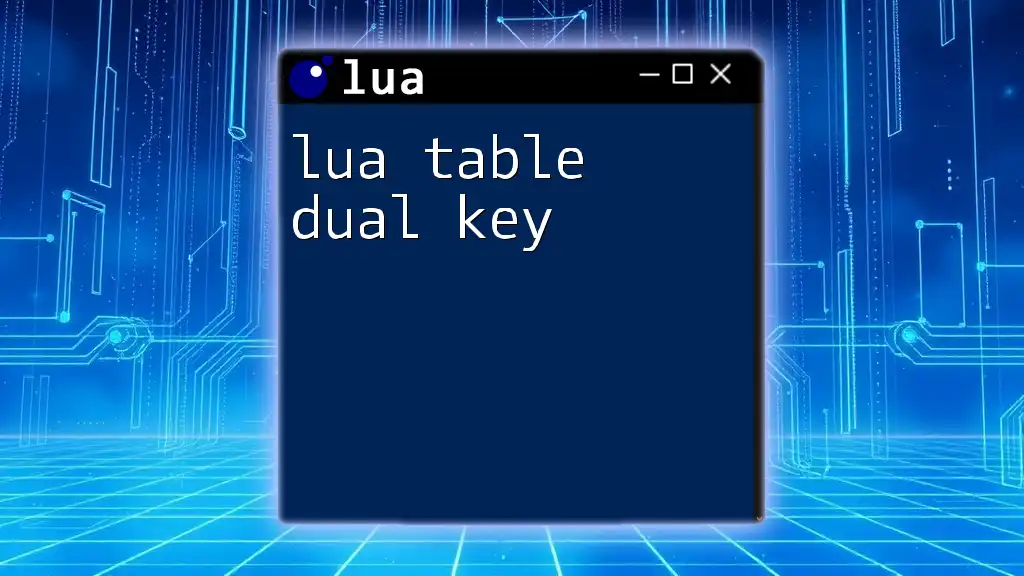
Conclusion
In this article, we've covered the essentials of using Lua in Tabletop Simulator, from setting up your environment to understanding advanced scripting techniques. Throughout this journey, you've learned how to create engaging mechanics, handle events, and optimize your code for performance.
Experimenting with these techniques will not only deepen your understanding but also enhance your overall experience in Tabletop Simulator. Remember, practice makes perfect, so don’t hesitate to create, innovate, and push the boundaries of what you can do with Lua.
Start creating your own scripts today! If you have any questions or need further assistance, feel free to reach out—your Lua tabletop simulator adventure awaits!

